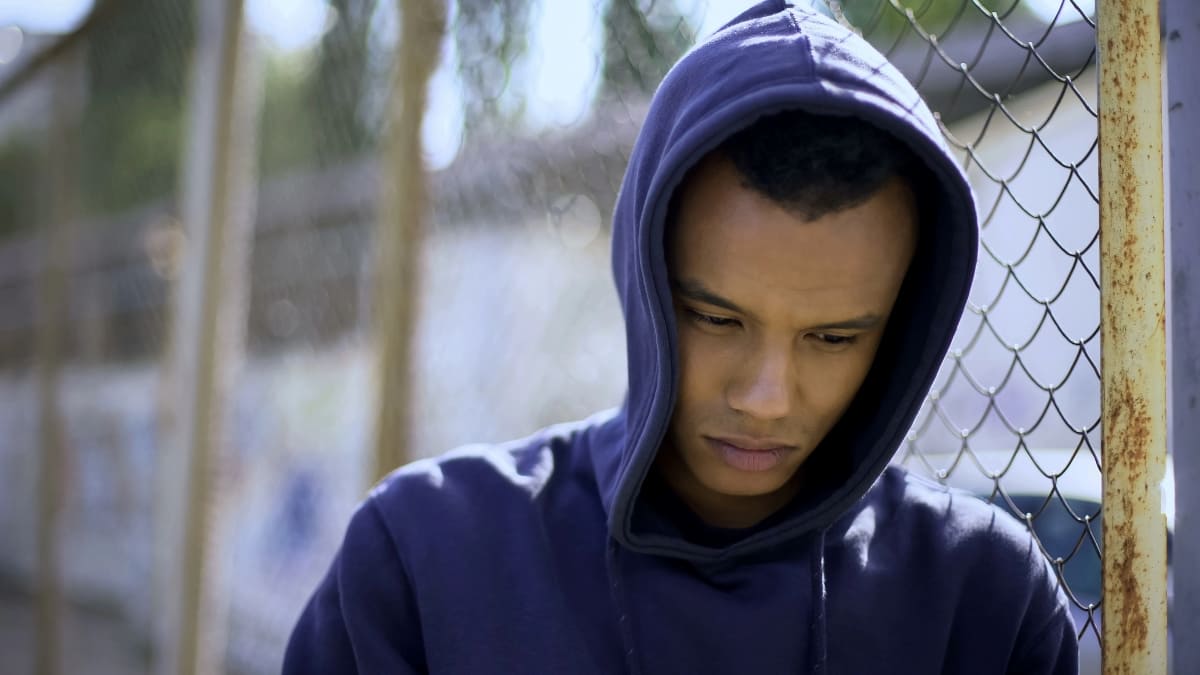Helpful Juvenile Delinquency Attorney In Manassas, VA
When your child is in trouble with the law, it can feel like the rug’s been pulled out from under you. However, Virginia’s juvenile justice system is different from the adult system—it’s built to help kids who’ve made mistakes get back on the right track. Understanding how it works and finding an experienced lawyer can make all the difference.
Here, you’ll learn how the law handles minors who break the law and the long-term consequences of offenses. See how juvenile delinquency differs from adult crimes, the types of charges involved, and how records are handled in Virginia. A juvenile delinquency attorney can provide the legal defense your child needs and help them rebuild their future.

Juvenile Delinquency In Virginia
Virginia law sees a minor as anyone under 18, and when they break the law, they’re referred to as “delinquents” rather than “criminals.” The idea is to help them learn from their mistakes rather than hit them with the total weight of adult consequences.
Delinquent acts refer to behaviors considered crimes, regardless of the offender’s age, such as theft or assault. These are viewed as serious violations of the law, and minors who commit them face legal consequences.
Status offenses, however, are activities that are only illegal because of the minor’s age, like skipping school or underage drinking. While less severe, these offenses still require legal attention, especially if they become recurring problems.
Searching for the words “juvenile criminal defense attorney near me” online can make all the difference. These attorneys understand the laws surrounding these offenses and how they differ from adult crimes. Their job is to ensure minors receive the opportunity for rehabilitation rather than harsh punishment.
Key Differences Between Youth & Adult Justice Systems
The juvenile and adult justice systems are like apples and oranges. Sure, they both involve courts and laws, but they couldn’t be more different in how they treat the people before them. Understanding these distinctions can help parents better navigate their child’s situation and prepare for what lies ahead.
Record Confidentiality
In Virginia, unlike adults, most juvenile records are kept under wraps. An exception arises when they are facing a felony conviction that would be considered a crime if committed by an adult. In those cases, the records can stick with them, making having a solid juvenile criminal lawyer even more important.
Terminology & Process Variations
The juvenile system has its lingo. For instance, minors aren’t “arrested” but are instead taken into custody. Similarly, they don’t face a “trial” but rather an adjudicatory hearing. Instead of “sentencing,” it’s called disposition, where the court decides on consequences aimed at rehabilitation.
Additionally, the atmosphere in court is often more informal, focusing on the child’s background, mental state, and life circumstances. An experienced juvenile criminal defense lawyer knows these nuances and can help make the process a little less scary.
Focus On Rehabilitation Vs. Punishment
The juvenile system strives for rehabilitation rather than punishment. Often, a judge’s goal is to help minors correct their behavior, providing them with the tools to avoid future legal trouble and become productive members of society. Additionally, courts focus on the child’s development rather than simply handing down penalties.
Counseling, community service, and educational programs are often used in place of incarceration. In contrast, the adult system usually emphasizes punishment, such as jail time, to deter future offenses and serve as a harsh consequence for unlawful behavior.
While knowing the differences is essential, it’s also vital to know what the juvenile justice process looks like in Virginia. Understanding the steps involved, from intake to disposition, can help families prepare for what’s ahead.
The Juvenile Justice Process
The juvenile justice process in Virginia has several stages. Each step is designed to assess the situation, provide opportunities for intervention, and determine a suitable course of action for the minor involved. Below is a brief look at the critical steps in this process, all of which are familiar territory for a skilled juvenile defense attorney.
Step 1: Intake Review
The first step in the juvenile justice process is the intake review. Here, an officer reviews the case to decide whether it should go through court. On the other hand, they can also recommend a diversion program if the offense isn’t too serious. A juvenile criminal attorney can advocate for informal handling, keeping the minor out of the court.
Step 2: Diversion Options
Diversion programs offer an alternative to formal court proceedings. These programs, which may include counseling, community service, or educational classes, aim to correct the behavior before it leads to more significant problems. A defense lawyer can help secure these options, keeping the minor’s record clean.
Step 3: Detention Hearings
If the minor ends up in detention, a hearing happens within 72 hours. Here’s where the juvenile defense lawyer comes in, working to get the child released rather than locked up while the legal process unfolds. Nobody wants their kid behind bars, so this step is about getting them home as soon as possible.
Step 4: Filing Of Charges
The court files a petition when the state brings formal charges against the minor. This is where things start getting serious. The petition, essentially the formal accusation, is the juvenile system’s way of progressing with the case. A juvenile criminal attorney at this stage becomes critical to building a solid defense.
Step 5: Court Hearing Or Adjudication
The court hearing is the moment of truth, where the judge determines whether the minor is responsible for the alleged offense. It’s similar to a trial, but rehabilitation is still focused. A juvenile crimes lawyer will fight to protect your child’s rights throughout this process.
Step 6: Sentencing Or Disposition
If the court finds them guilty, a disposition hearing follows. This is where the consequences are laid out, whether probation, community service, or detention. An attorney works to mitigate those consequences to achieve a favorable path forward.
Once you understand the steps in the juvenile justice process, you might start thinking ahead to what comes after the court’s decision. By searching for the words “best juvenile defense lawyer near me” on Google, you can take the first step to ensuring these consequences don’t shape your child’s future.
The Long-Term Consequences Of Offenses
In Virginia, most juvenile records are kept confidential and won’t affect the child’s future. Typically, these are destroyed when they turn 19, as long as five years have passed since their final hearing. However, if the offense is something that would be considered a felony for an adult, those records remain public and can have lasting consequences.
Education Setbacks
Schools can suspend or expel students with delinquency records, limiting their access to education. As a result, this can make it difficult for the child to graduate on time. Even getting into college can be tricky, with a record hanging over their head.
Career Opportunities
Some offenses—especially felonies—can follow a person into adulthood, making it harder to land specific jobs. Background checks are standard in healthcare, finance, and government, and a juvenile record can close doors. A juvenile defense lawyer can guide you through the steps needed to help give your child a chance at a successful career.
Social & Personal Fallout
The social stigma of having a juvenile record can be challenging to shake. It can make a kid feel like they’ve got a label slapped on their forehead. They might be treated differently by peers, teachers, and family members. The right attorney will fight for rehabilitation so the child can shed that label and confidently move forward.
Understanding the long-term consequences of juvenile offenses can be overwhelming for any parent. It’s natural to want to protect your child from lasting damage, whether it’s to their education, career, or relationships. This is where having the proper legal support becomes vital.
The Irving Law Firm Protects Your Child’s Future
At The Irving Law Firm, we know that one mistake shouldn’t define your child’s future. We aim to allow them to move forward and build a better path. From the first time you reach out, we’ll explain the process so you’re not left in the dark. We work to keep your kid out of detention and push for alternatives that help them learn and grow.
We’re here to fight for your child’s future and ensure they get the second chance they deserve. If you’re in Manassas, Virginia, and need help, give us a call. Our team is ready to stand by your side and protect what matters most.
Juvenile delinquency refers to unlawful acts committed by minors, ranging from status offenses like truancy to more serious crimes like theft. Unlike the adult system, the process aims to guide minors toward better choices. Most records are confidential and often destroyed after a certain age, except in cases involving felony-level crimes.
An experienced juvenile delinquency attorney can make all the difference in securing a better future. With a deep understanding of the system, they work to minimize the long-term impact of offenses and fight to keep a child’s record clean. The Irving Law Firm stands by families during these difficult times, ensuring their mistakes don’t follow them forever.
What Our Clients Say About Us
Our lawyers will represent you in family, business formation, criminal, personal injury, & estate planning matters.
They Are Top Notch
I arranged for Rachel Goldsher with this firm to handle my brother’s divorce. She and the firm’s staff were very responsive to his needs, and recommended a course of action that was reasonable and cost effective. Their billing was very reasonable, with paralegals and other staff handling much of the routine work and billing accordingly. As a result the overall cost of the divorce was reasonable. Rachel also effectively addressed my brother’s particular needs in the settlement agreement. I highly recommend.
I Highly Recommend
I arranged for Rachel Goldsher with this firm to handle my brother’s divorce. She and the firm’s staff were very responsive to his needs, and recommended a course of action that was reasonable and cost effective. Their billing was very reasonable, with paralegals and other staff handling much of the routine work and billing accordingly. As a result the overall cost of the divorce was reasonable. Rachel also effectively addressed my brother’s particular needs in the settlement agreement. I highly recommend.
I Highly Recommend Them
In a time of turmoil, the Irving Law Firm was there to answer my questions regarding a divorce. They do not try to gouge you and explain ways to make your divorce less stressful and pocket friendly. I highly recommend them.
I’d Definitely Hire Again If NeededRebecca and staff were wonderful handling my case. They seemed mindful of the billed time and I didn’t feel any was excessive. Her attention to detail brought me additional arrearages which a former attorney didn’t notice or enforce on prior filings. I’d definitely hire again if needed.
I Highly Recommend The Irving Law Firm To AnyoneMy experience with ms.Rachel Goldsher was nothing short of outstanding. She handled my case with the utmost professionalism and care. Her proactive approach was exceptional. I highly recommend THE IRVING LAW FIRM to anyone.
Excellent Results In Family & Criminal CasesExcellent results in family and criminal cases. I recommend the Irving law firm you will be satisfied. Thank you so much
Highly Recommend!!
Great support throughout the process and excellent results delivered. Highly recommend!!
We are on a mission at The Irving Law Firm to provide exceptional service and client satisfaction.


